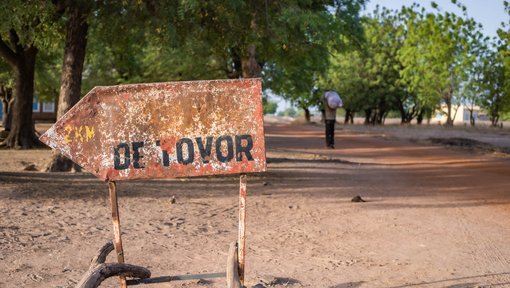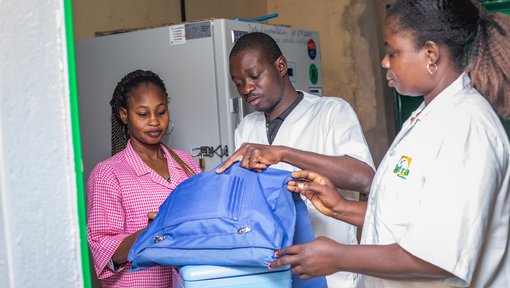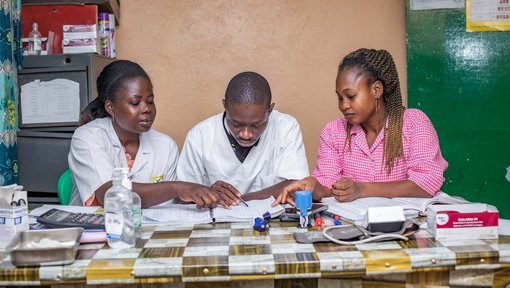Our impacts
For more than 25 years, GIZ Proklima has been at the forefront of ozone and climate protection, contributing significantly to advancing Green Cooling worldwide. Supported by the German government and other donors, the programme offers comprehensive policy advice, capacity building and technology transfer across more than 60 countries. And it’s worth it: our projects have achieved remarkable emission reductions while catalysing tangible improvements for people, such as access to cooling or enhanced income opportunities.
Proklima Impact Figures
Proklima Impact Stories
Let us give the word to people in our project countries.
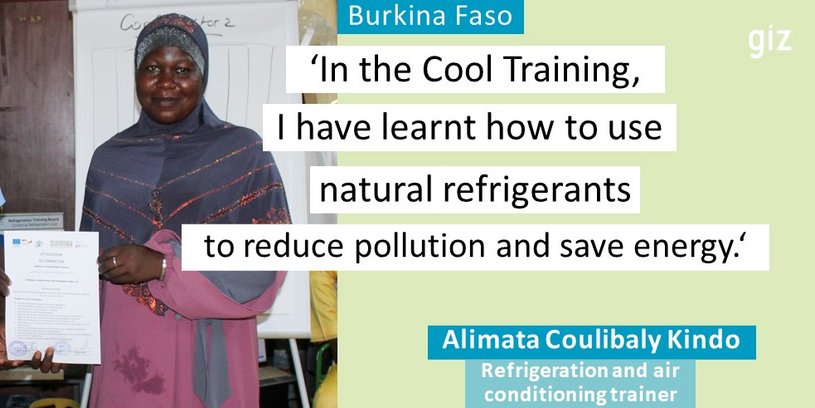
Learn more about Alimata
"As refrigeration technicians, we contribute to environmental pollution and global warming", explains Alimata COULIBALY KINDO, trainer in refrigeration and air conditioning . Her sector is responsible for around 10% of global greenhouse gas emissions. These emissions are caused by the high electricity consumption of the appliances and the high global warming potential of the refrigerants in use. In October 2022, Ms Coulibaly took part in our Cool Training. "In the GIZ Cool Training, I learnt how to use natural refrigerants to reduce pollution and save energy."
One year later, she says that she uses the content of the training in her lessons. She says: "Other generations will come after us. So we are all called upon to protect this planet!"
The project "Climate and Ozone Friendly Cooling in West and Central Africa (ROCA)" has trained more than 150 instructors in its project countries Burkina Faso, Cameroon, Mali and Senegal. In Burkina Faso alone, those trainers have teached over 2 700 students in 2023.
Country: Burkina Faso
Project: ROCA (opens in a new window)
Donors: European Union, German Federal Ministry for Economic Cooperation and Development
Listen to Alimata and other Cool Training participants who explain the advantages of natural refrigerants:
This video is being blocked because of your cookie settings.
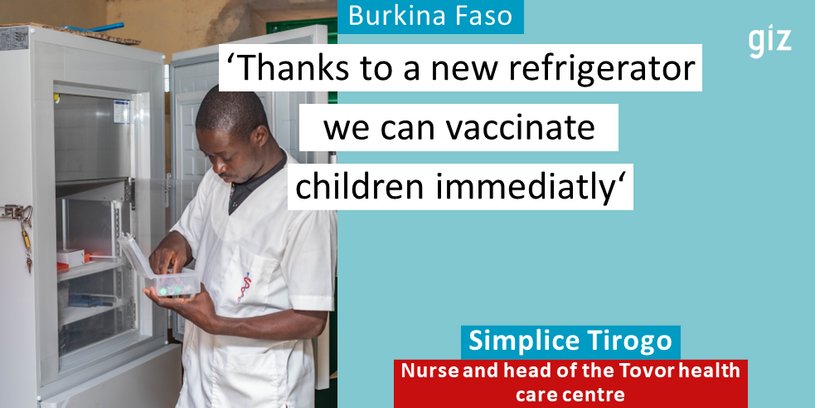
Learn more about Simplice
Simplice Tirogo is a nurse and head of the centre for health care and social support in Tovor, Burkina Faso. The project 'Ozone and Climate Friendly Cooling in West and Central Africa (ROCA)' supported his health care centre with a vaccine refrigerator in 2023. "Our refrigerator was broken since 2020, so the vaccines had to be stored in a neighbouring village. Each time, we had to travel 15 km to bring back the vaccines in a transport box that lasted cold during only a day or two. That means, the cold chain was not sufficient and many vaccines spoiled", explains Simplice Tirogo. "Since we received the refrigerator, we can store the vaccines and keep them fresh on site. We can now instantly immunise the pregnant women and the children who come here and whose vaccinations had to be postponed before. This is very satisfying. I thank all partners who made this possible."
During the first year after the acquisition, 11 000 persons profited from vaccinations in Tovor and in nine other newly equipped health care centres. The new refrigerators are even more climate-friendly than the previous ones: they are very energy-efficient and run on the natural refrigerant isobutane (R600a). The necessary electricity comes from solar panels.
Country: Burkina Faso
Project: ROCA (opens in a new window)
Donors: European Union, German Federal Ministry for Economic Cooperation and Development

Learn more about immunization in Malawi
Children’s vaccination rates of 80-90% are the new standard in Bilira, Malawi – thanks to the successful implementation of a cold chain for vaccines and of an application which provides medical records. Before, many vaccines spoiled due to the missing cooling devices during the transportation to the different medical centers. This amount has been reduced by half.
Additionally, the app implementation and the offer of tablets for the medical workers created the opportunity to register children for their vaccination and keep track of who is fully vaccinated. If someone misses an appointment, the medical personal can directly contact the parents and remind them to make a new one. This makes planning also easier as the vaccine doses can be ordered depending on the number of children that will come.
„This is the way to go for the whole country. We need to move quickly in this direction to make sure the whole health system becomes more efficient and effective” said Stephen Macheso (opens in a new window), Director of Health and Social Services in the district of Ntcheu.
Three years later, in 2024, the cooling devices and the application are still in use. Malawian authorities currently integrate the electronic patient register into the national healthcare information system. Additionally, a comprehensive immunization registry is being established which will also be supported by the app.
Country: Malawi
Project: Emmunize (opens in a new window)
Donors: BMZ, Merck Foundation
Gallery
More stories coming soon...




